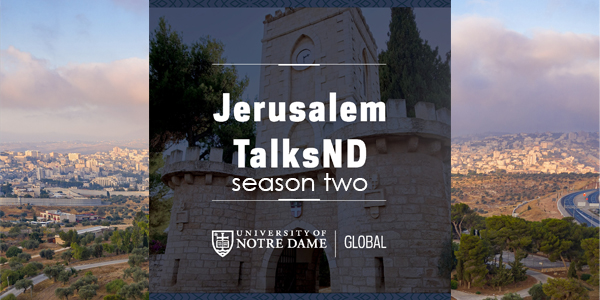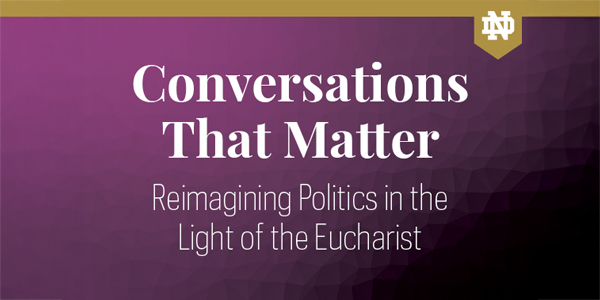In the latest installment of Mental Health and the Catholic Church, titled “The Church, The Healing Community”, prominent figures within the faith and mental health communites came together to discuss the intricate relationship between spirituality and mental well-being. Beth Hlabse, director of the Fiat Program on Faith and Mental Health, Louis Damani Jones, a behavioral health therapist with SSM Health, Sofia Carozza, a Marshall Scholar at the University of Cambridge, and Leonard J. DeLorenzo, director of undergraduate studies at the McGrath Institute for Church Life, all offered their insights into how the Church can serve as a catalyst for healing.
A primary focus for the panel was the concept that true healing transcends the individual and becomes a social responsibility. DeLorenzo conveyed that salvation and health are not solely personal endeavors but are deeply rooted in community and charity. He asserted that the Church should be a place where such communal healing is not only encouraged but actively facilitated. This idea set the groundwork for a broader discussion on the communal nature of recovery and support within the context of faith-based communities.
Hlabse further developed this idea by differentiating between treatment—which can often be an isolated and individualized approach—and healing, which she defined as a comprehensive and holistic practice centered around deep connections with others. She urged the Church to adopt practices that command a sense of living in communion, where acts of love and the common good are paramount.
Jones discussed the Church’s role in fostering therapeutic relationships. He underscored the Church’s unique position to establish intimate and restorative interactions that might be essential for someone grappling with mental health concerns. Moreover, Jones suggested that such healing interactions do not always require clinical expertise but are born from creating inviting spaces for authenticity within the parish community.
Adding a neurological perspective to the conversation, Carozza highlighted the scientific backing for the necessity of relationships and community in the journey toward mental health. She cited research that demonstrates how significant social relationships affect neuroplasticity and overall psychological well being. Carozza advocated for a Church that adopts an informed attitude of curiosity and patience, allowing individuals struggling with mental health to experience a sense of belonging and care.
In addressing the power of narratives, DeLorenzo shared the transformative potential of ‘stories of grace,’ where individuals could see God’s presence through their journey, fostering a sense of community and affinity. He stressed that through shared stories, individuals could find comfort in the midst of their suffering.
As the webinar progressed, the conversation touched upon the delicate nature of forgiveness in the healing process, especially concerning mental health. DeLorenzo drew from Christian doctrine to illustrate the potency of forgiveness, while Hlabse spoke to the challenge of self-forgiveness and the consequential need for self-compassion. Carozza brought this point home, contextualizing forgiveness within the scope of mercy and hope, and the need for identifying and nurturing those small certainties that act as stepping stones towards greater self-understanding and reconciliation.
Ultimately, the speakers converged on the belief that healing, at its core, is about understanding each person’s inherent worth as a child of God. They concluded with a hopeful vision for the Church as a community that embraces everyone, acting as a testament to the Gospel’s call to love and support, particularly in the most challenging times of mental health struggles.
In summary, the insights shared during the discussion underscored an evolving approach towards mental health within spiritual communities. Each panelist underlined the Church’s role as both a physical and a spiritual sanctuary that is called to foster holistic healing through communal relationships, narrative-sharing, and the embracing of patience and understanding. As the conversation came to a seamless close, it was evident that the panelists had charted a course for how faith communities could provide more inclusive and understanding support structures for those navigating the complexities of mental health challenges.







